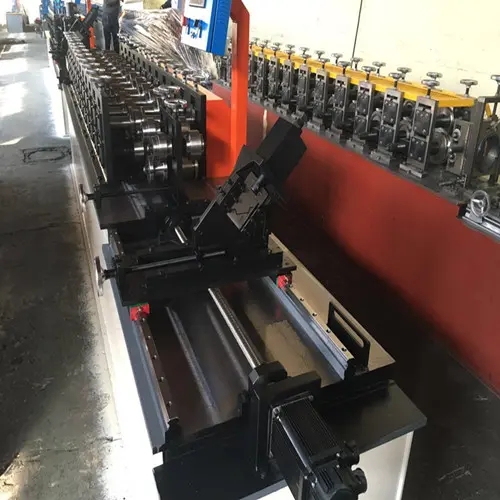
The Role of Roll Forming Machines in Metal Ceiling Systems
In the construction and interior design industries, the installation of metal ceiling systems has gained significant popularity due to their durability, aesthetic appeal, and ease of maintenance. The components that make up these systems, such as stud and track, drywall, C channels, main channels, and wall angles, are essential for ensuring stability and functionality. Roll forming machines play a crucial role in the production of these components, streamlining the manufacturing process and enhancing overall efficiency.
Roll forming is a continuous bending operation that transforms metal sheets into specific shapes. This method is particularly useful for producing metal studs and tracks, which serve as the skeletal framework for suspended ceilings. The precision and uniformity achieved through roll forming ensure that each component meets stringent quality standards, which is vital for structural integrity.
C channels and main channels are fundamental elements of metal ceiling systems that facilitate the secure attachment of drywall and other ceiling finishes. Roll forming machines enable manufacturers to create these components at high speeds and with minimal waste. The ability to customize dimensions and profiles also allows for greater flexibility in design, catering to various architectural requirements.

In addition to C channels and main channels, wall angles are essential for providing a clean and professional finish where the ceiling meets the walls. The production of wall angles using roll forming technology ensures that they are manufactured with consistent thickness and strength, which contributes to the overall durability of the ceiling system.
Furthermore, the integration of advanced technology in roll forming machines has led to enhancements in automation and productivity. Features such as programmable controls and real-time monitoring allow for quicker adjustments and greater precision during the manufacturing process. This not only reduces lead times but also minimizes labor costs, making it an attractive option for manufacturers.
In conclusion, roll forming machines are indispensable in the production of metal ceiling components such as studs, tracks, C channels, main channels, and wall angles. Their ability to produce high-quality, custom shapes efficiently makes them essential for modern construction practices. As the demand for versatile and resilient ceiling systems continues to rise, the role of roll forming technology will undoubtedly remain significant in shaping the future of interior design and construction.